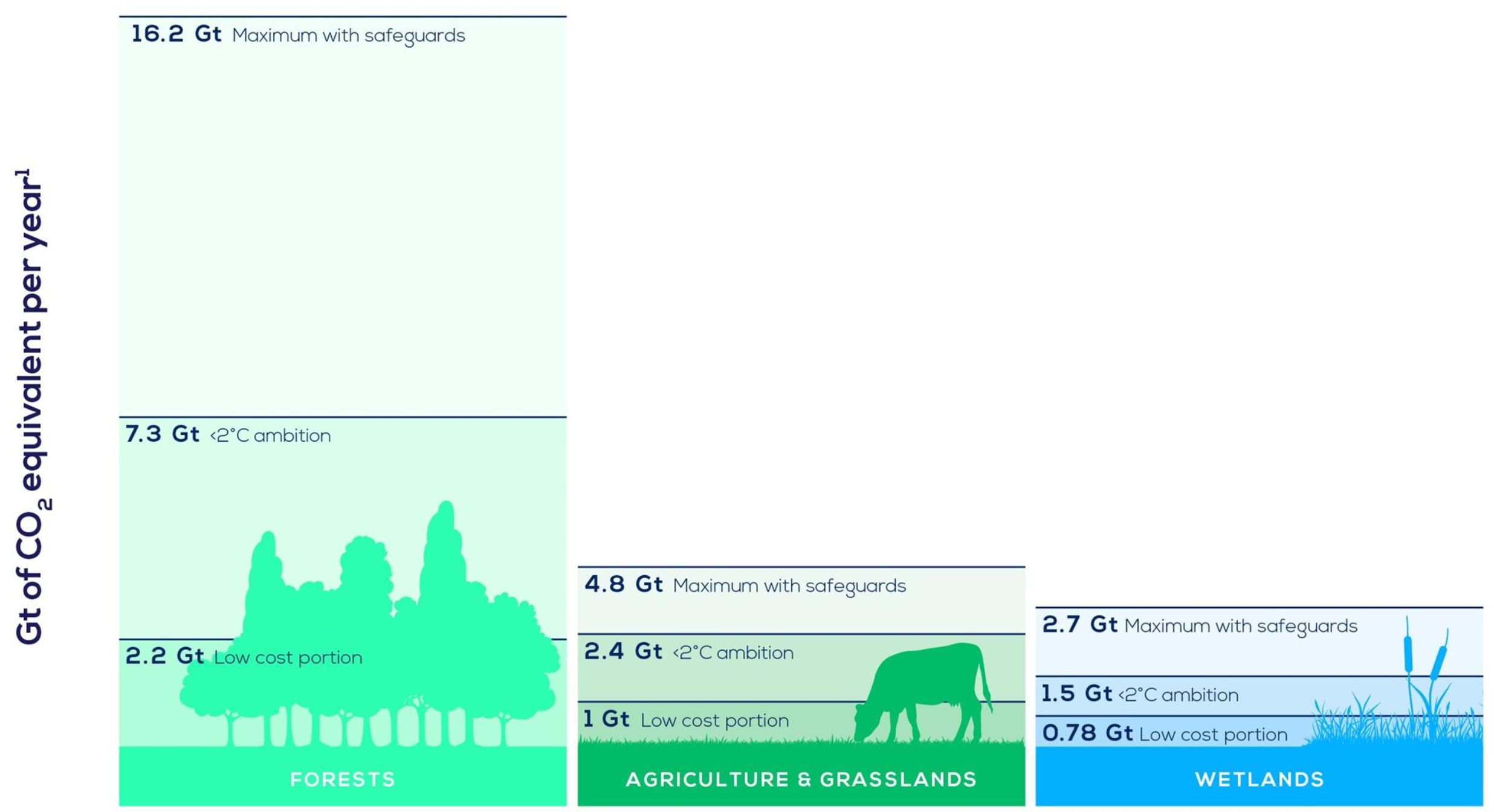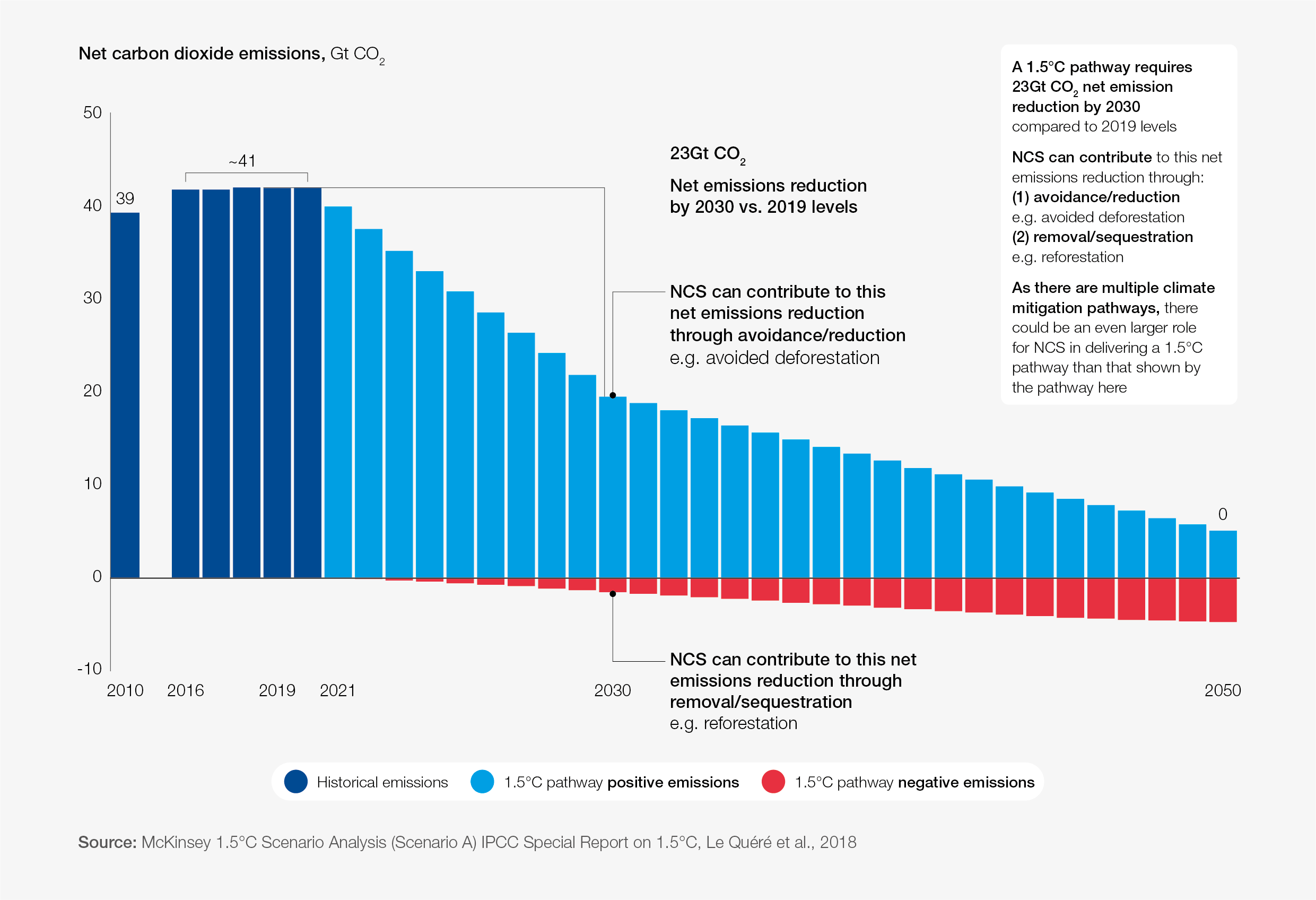Davos 2023: Why philanthropy is a catalyst for protecting our planet
Philanthropy can play a vital role in financing for climate and nature action.
Image: Unsplash/Andreas Gücklhorn
Stay up to date:
Climate and Nature
Listen to the article
Correction: A previous version of this article incorrectly identified the scope of work covered by Philanthropy Asia Alliance.
- Business leaders at Davos discussed how philanthropy can help accelerate and scale up action on climate and nature.
- In the Philanthropy: A Catalyst for Protecting Our Planet session, panellists outlined the importance of philanthropic capital.
- Here's a round-up of how public, private and philanthropic partnerships can help us reach net zero and reverse nature loss.
“When you stop and think about it, it is pretty extraordinary that we – a select group of human beings, because of whatever touched us at some point in our lives – are able to sit in a room and come together and talk about saving the planet."
So said John F Kerry, US Special Presidential Envoy for Climate on day two of Davos 2023 as he opened a session discussing the importance of philanthropy and how it can act as a catalyst for protecting our planet.
The session launched the Giving to Amplify Earth Action (GAEA) initiative, the World Economic Forum’s global initiative to fund and grow new and existing public, private and philanthropic partnerships (PPPPs) to help unlock the $3 trillion of financing needed each year to reach net zero, reverse nature loss and restore biodiversity by 2050.
Central to this is bringing on board the corporate world to ensure concrete action on climate and nature, stressed Kerry. “Somehow we leaders, to lead, have got to be able to bring folks to the table and organize ourselves around real things that are really going to make a difference.”
While events such as the major floods seen in Pakistan were unfathomable, post COP26 and COP27, we have an opportunity and the tools – be they technology, creativity or civic efforts – to tackle some of the world’s greatest challenges such as keeping global emissions below 1.5ºC, he added.
Accept our marketing cookies to access this content.
These cookies are currently disabled in your browser.
“Key to that is philanthropy. It’s not the only key; we need governments to put public money into it. But the secret to this is this partnership, GAEA,” he said.
So how can philanthropic capital be used to accelerate action on climate and nature, as envisioned by the GAEA call to action?
Layers of capital needed for climate action
Mark Carney, United Nations Special Envoy for Climate Action and Finance, stressed the importance of layers of capital that can catalyze investments. In this light, philanthropic capital can play a key role by financing projects at the outset and eventually bringing in bigger layers of private capital.
He also stressed the importance of a just transition. “These changes bring widespread displacement of workers, impacts on communities. We need retraining, we need on-the-ground assistance – there, now and again, a real role for philanthropic capital," said Carney.
“These interventions unlock tens of thousands of dollars and I’d like to say that the private sector is going to move in and do them – and maybe they should – but we can’t wait.
"And in many respects, the expertise resides elsewhere, which is in the philanthropic community.”
Philanthropy key to fulfilling COP pledges
A key theme of COP27 in Sharm-el-Sheikh was fulfilling climate pledges made at COP26 and philanthropy can also play a prominent role in achieving those aims, according to Rania Al-Mashat, Egypt’s Minister of International Cooperation.
Today, only 2% of all philanthropic giving goes to climate and nature, although when one looks at financing that goes to farmers – which is adaptation – the segment is a little larger and that’s what needs to be focussed on, she said.
What is the World Economic Forum doing on natural climate solutions?
“We need to work collectively to be able to also push philanthropic action and money into adaptation resilience, to avoid things like what happened in Pakistan,” she added, although also stressed that governments need to put forward compelling and convincing arguments about projects, while also being transparent.
“If we are able to define what our country priorities are, with respect to climate and development, we’ll be able to mobilize financing – so whether it’s mitigation or adaptation, we can move forward,” said Al-Mashat.
Philanthropy Asia Alliance to scale climate action
A prime example of where philanthropy is being linked to private-public action to scale action on areas such as climate and nature is the Philanthropy Asia Alliance, a Temasek Trust initiative focused on collaborative philanthropy.
Home to 60% of the world’s population and accounting for 42% of global wealth, Asia also accounts for more than half of global emissions, says Desmond Kuek, CEO of Temasek Trust. Almost two-thirds of the climate vulnerable are also in south and south-east Asia, he added.
What’s the World Economic Forum doing about climate change?
“We believe that collaborative philanthropy is crucial to bringing together the public, private and philanthropic sectors to address the more systematic structural environmental and social challenges,” Kuek told the panel.
The Philanthropy Asia Alliance is intended to pull together collective resources and expertise with the view of catalyzing collective action for a better world, and to prime Asia as a force for the greater good.
It is now actively reaching out to like-minded partners from across the world, including donors and partners to manage projects on the ground to enable change.
Quantity as important as quality
But it’s not just about quantity, quality matters too. Because it is nimble, patient, risk-tolerant and equitable by nature, strategic philanthropy can drive that multiplier effect in partnership with business and government, according to Badr Jafar, CEO of Crescent Enterprises and recently appointed Special Representative for Business and Philanthropy.
“In many respects, I think climate philanthropy can be that glue that binds together business, government and civil society towards better outcomes in furtherance of our climate and nature goals,” he observed.

Climate philanthropy within emerging markets is currently relatively low, despite them being the most likely to bear the brunt of the impact of global warming.
However, Jafar sees reasons for optimism and expects major changes in the near future thanks in part to a greater institutionalization of philanthropy, but also due to a change in mindset among a generation more attuned to the risks and opportunities associated with climate action, as well as a growing general awareness of the climate challenge's interconnectness with issues such as health, food security and social justice.
Looking forward to COP28 in Abu Dhabi, Jafar said it is up to meeting the climate challenge of creating collaborative systems and a global architecture for various players to come together, to pool capital and also ideas and energies to create a multiplier effect.
Philanthropy key to 'cooperation in fragmented world'
This year’s Davos theme is ‘cooperation in a fragmented world’, the concept of how different forms of capital can come together to drive greater outcomes – be it public, private or philanthropic – has never been more important as a vision for climate and nature action, observed Nili Gilbert, Vice-Chairman of Carbon Direct, in the closing speech.
“As we continue to expand on this concept, think about specific opportunities for how GAEA can move forward in driving strategic systemic change that we need,” she said. “Making a difference on climate touches all of our interconnected global goals.”
Don't miss any update on this topic
Create a free account and access your personalized content collection with our latest publications and analyses.
License and Republishing
World Economic Forum articles may be republished in accordance with the Creative Commons Attribution-NonCommercial-NoDerivatives 4.0 International Public License, and in accordance with our Terms of Use.
The views expressed in this article are those of the author alone and not the World Economic Forum.
Related topics:
Forum Stories newsletter
Bringing you weekly curated insights and analysis on the global issues that matter.
More on Forum InstitutionalSee all
Victoria Masterson, Stephen Hall and Madeleine North
March 25, 2025
Lorez Qehaja
March 19, 2025
Madeleine North
January 28, 2025







